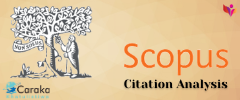Penerapan Model Project Citizen dalam Upaya Meningkatkan Kecerdasan Ekologis
Abstract
This research is an effort to improve ecological intelligence by using the Citizen project model. The method used in this study was a classroom action research in which regular 3rd semester students of Elementary School Teacher Education (IKIP) Siliwangi were the subject. The result of this research showed that the teaching plan through the citizen project model needs careful planning. There are some obstacles in implementing the above model i.e. students are still rigid in finding the problems, making solutions to problems and solving problems. Nevertheless, through the improvement in subsequent cycles, the better ecological intelligence can be seen from cycle I to cycle III in the aspect of knowledge with an average score of 86 (excellent), awareness 3.60 (excellent) and the application 3.70 (very good). The above scores improvement is associated with the ecological intelligence aspects of waste care.
Keywords
Full Text:
PDFReferences
Budimansyah, D & Suryadi, K, S. (2008). PKn dan Masyarakat Multikultural. Bandung. Program Studi PKn Sekolah Pascasarjana UPI Bandung.
Budimansyah, D. (2009) Inovasi Pembelajaran Project Citizen, Bandung: ProgramStudi PKn SPS UPI.
Capra, F. (1995). The web of life. Harper Collins.
Depdiknas. (2003). Undang-Undang RI Nomor 20 Tahun 2003, tentang Sistem Pendidikan Nasional. Jakarta: Depdiknas.
Goleman, D. (2010). Ecological intelligence/ kecerdasan ekologi. Jakarta: PT. Gramedia Pustaka Utama.
Greenbank, P. (2010). Developing Decision-making Skills in Students: an active learning approach. Teaching and Learning Development Unit. Edge Hill University.
Kahn, R. (2010). Critical pedagogy, ecoliteracy, & planetary crisis, the ecopedagogy movement. New York: Peter Lang Publishing.
Karlina, F, Degeng, N, S, Ach, A. (2017). Ecoliteracy siswa SD dalam kegiatan pengelolaan sampah melalui group investigation berbasis outdoor study. Jurnal Pendidikan Vol. 02, No.07.
Kates, R. W, Thomas, M. P, & Anthony, A.L. (2005). What is suistainable development? Environment: Science and Policy for Sustainable Development Vol 47 No 03 Page. 8-21.
Krehbiel, M. (2012). Option A or Option B: The Steps of the Decision Making Process. University of Nebraska–Lincoln Exten.
Nasution, D.W., Syarifuddin, & Manurung, B. (2016). Analisis kecerdasan ekologis berbasis kearifan lokal pada siswa SMA di Desa Jaring halus Kecamatan Sicanggang dalam pemanfaatan dan pelestarian hutan mangrove. Jurnal pendidikan biologi Vol. 05, No. 03.
Natitupulu, N. D. (2015). Pengemabangan Sikap ekologis melalui pembelajaran ecophisycs berbasis ecopedagogy. Jurnal inovasi dan pembelajaran fisika Vol. 02, No. 02.
Nugraha, R. (2015). MENINGKATKAN ECOLITERACY SISWA SD MELALUI METODE FIELD-TRIP KEGIATAN EKONOMI PADA MATA PELAJARAN ILMU PENGETAHUAN SOSIAL. Mimbar Sekolah Dasar, 2(1), 60-72. doi:http://dx.doi.org/10.17509/mimbar-sd.v2i1.1322
Rahayu, G.D.S. (2013). Pengaruh model pembelajaran inkuiri dalam meningkatkan keterampilan proses sains siswa pada materi gerak benda dipengaruhi oleg bentuk dan ukuran tersedia di http://repository.upi.edu/5225/ di akses tanggal 7 Februari 2018.
Septiyan, G. (2017). PENGARUH MODEL TEAMS GAMES TOURNAMENT TERHADAP KETERAMPILAN PENGAMBILAN KEPUTUSAN DALAM PEMBELAJARAN IPS DI SEKOLAH DASAR. Mimbar Sekolah Dasar, 4(1), 106-116. doi:http://dx.doi.org/10.23819/mimbar-sd.v4i1.5547.
Stone & Barlow (2005). Ecological Leteracy Ducating Our Children fo a Sustainable World. San Franciso: Sierra Club Books.
Supriatna, N. (2013). Developing green behavior through ecopedagogy in social studies learning in elementary schools in Bandung, Indonesia. Department of Social.
Wiriatmadja, R. (2005). Metode penelitian tindakan kelas untuk meningkatkan kinerja guru dan dosen. Bandung: PT. Rosdakarya.
Yunansah, H & Herlambang, Y.T. (2017). Pendidikan berbasis ekopedagogik dalam menumbuhkan kesadaran ekologis dan mengembangkan karakter siswa sekolah dasar. Edu Humaniora. Bandung: Universitas Pendidikan Indonesia.
DOI: https://doi.org/10.53400/mimbar-sd.v5i1.9684
Refbacks
- There are currently no refbacks.
Copyright (c) 2018 Mimbar Sekolah Dasar

This work is licensed under a Creative Commons Attribution-ShareAlike 4.0 International License.
View Mimbar Sekolah Dasar Stats


.png)

.png)
